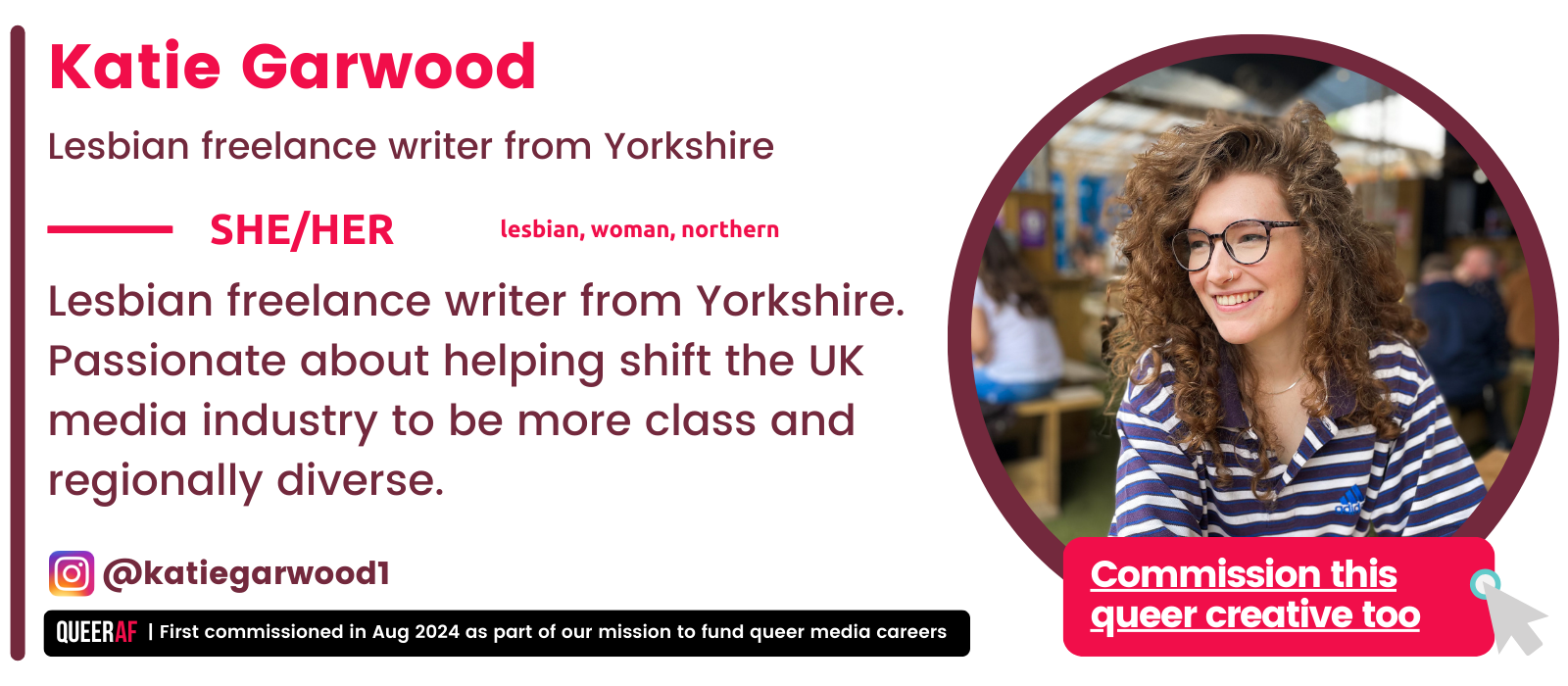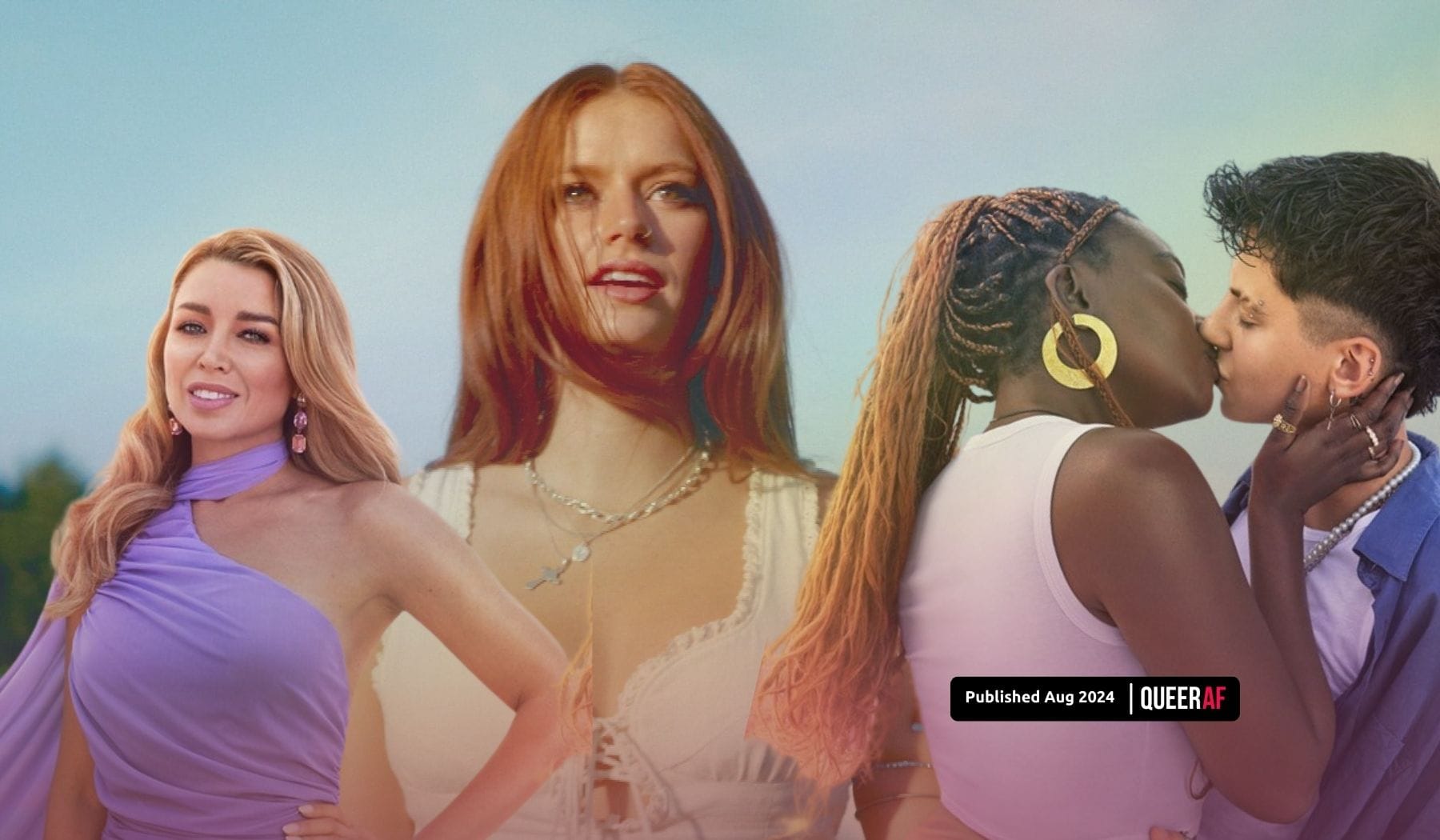
The UK’s first women-loving-women dating show I Kissed a Girl aired this summer, and I was buzzing that two of the girls, Georgia and Meg, are from Yorkshire where I grew up. But as the crew digests whether to bring it back for another hit season, this Yorkshire lesbian has some views.
When people from the north are represented on TV it’s often as caricatures. The TV industry is undeniably London-centric and middle-class.
Having been forced to move to London to work in TV because of the relentless underfunding in my area that perpetuates this divide, I often find that decision-makers can’t even point to the areas they’re portraying on a map.
But reality TV provided a route to change this, as it is designed to feature a diverse selection of real people and their lived experiences. Finally, through I Kissed A Girl, people across the country would hear genuine queer northern voices.
However, since its release, most of the attention has been paid to Amy, the self-proclaimed “posh girl” who attended a private school in Surrey.
Amy’s ‘main character edit’ is undeniable - she’s made to be the soul of the show and consequently blew up on socials, with fans calling her ‘Lady Di’, and nominating her for ‘Best Female Personality’ in the National Reality TV Awards.
I do not deny that she’s a bit of an icon - but I can’t help but feel frustration at yet another privileged person dominating our screens and overshadowing those from regional areas, especially in such a pivotal show for the women-loving-women community.
Georgia and Meg, who both made it to the final alongside Amy, could have been equally riveting - if we had had the chance to get to know them.
It’s evident how much a main character edit affects public perception. Editors and producers have a responsibility to facilitate fair representation - but that expectation doesn’t change the fact that the TV industry has even more of a regional and class imbalance off-screen than on.
Research from this year found that only 8% of TV workers are from working-class backgrounds - the lowest level in a decade.TV workers are twice as likely to have attended private school', based on 2019 Ofcom research.
If we don’t have diverse voices behind the scenes championing the same authentic representation on screen, it just won’t happen.
As a lesbian from Yorkshire working in TV, this is my plea for something to change. How many more will have to uproot and move hundreds of miles from home to work in the industry?
How many more people will never see themselves on screen? This lack of representation on screen is not only affecting our industry, it’s affecting our lives.

Media. Misinformation. Misery - but not here.
At QueerAF, we unpack the whole story to bring you the central facts, plus valuable analysis from a queer perspective, because we know all too well:
- How difficult it is to keep up with the news, especially when it's so horrible
- How much some of the media manipulates information about being LGBTQIA+
- The power in finding the hope, joy and light in our community's enduring and beautiful landscape - even when things are tough.
Wellbeing is everything. We're thinking about that not just for our team and creatives, but for our audience too.
It's no use us joining in with the noise. We're here to turn the volume down. That means we grow more slowly - but that's a price we're willing to pay if it means that in the long term we’re all stronger for it.
That means running our newsletter without ads so we can focus on what you need to know and what content you want to see, instead of chasing clicks.
We know not everyone is in the position to pay for news, but if you can help us keep this newsletter free for everyone and claim some great perks in return, please:










